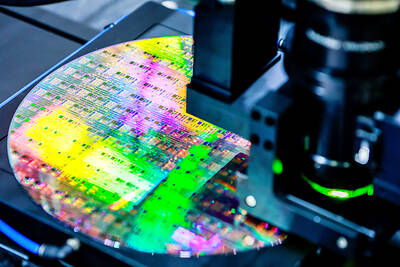GPS and wearable device manufacturer Garmin Ltd is offering more than 1,000 jobs on new production lines in Tainan, with operations set to start in October, the company said on Tuesday.
Garmin plans to hire more than 1,000 workers for its plant at Tree Valley Park (樹谷園區) in Tainan’s Sinshih District (新市), with positions ranging from engineers and assembly line workers to administrative staff, the company said in a statement.
It plans to invest NT$9 billion (US$323.3 million) in new capacity, as its production in Taiwan, which accounts for 95 percent of its global output, is near full capacity because of strong global demand, Garmin said.
According to the quarterly earnings report released late last month, Garmin posted revenue of US$1.33 billion and profits of US$371 million during the April-June period.
The company saw double-digit annual growth in its five main businesses during the April-to-June period — 74 percent in automobile-related products, 66 percent in marine business, 57 percent in outdoors business, 43 percent in aviation products and 40 percent in fitness-related products.
While accepting online interview appointments through its Web site, Garmin also plans to hold a recruitment campaign in the industrial park starting on Monday, and at locations in Tainan on Saturdays through Sept. 18, it said.
Garmin estimates that its new production lines in Tainan would create more than NT$50 billion in annual production value.

TECH TITAN: Pandemic-era demand for semiconductors turbocharged the nation’s GDP per capita to surpass South Korea’s, but it still remains half that of Singapore Taiwan is set to surpass South Korea this year in terms of wealth for the first time in more than two decades, marking a shift in Asia’s economic ranks made possible by the ascent of Taiwan Semiconductor Manufacturing Co (TSMC, 台積電). According to the latest forecasts released on Thursday by the central bank, Taiwan’s GDP is expected to expand 4.55 percent this year, a further upward revision from the 4.45 percent estimate made by the statistics bureau last month. The growth trajectory puts Taiwan on track to exceed South Korea’s GDP per capita — a key measure of living standards — a

Samsung Electronics Co shares jumped 4.47 percent yesterday after reports it has won approval from Nvidia Corp for the use of advanced high-bandwidth memory (HBM) chips, which marks a breakthrough for the South Korean technology leader. The stock closed at 83,500 won in Seoul, the highest since July 31 last year. Yesterday’s gain comes after local media, including the Korea Economic Daily, reported that Samsung’s 12-layer HBM3E product recently passed Nvidia’s qualification tests. That clears the components for use in the artificial intelligence (AI) accelerators essential to the training of AI models from ChatGPT to DeepSeek (深度求索), and finally allows Samsung

Taiwan has imposed restrictions on the export of chips to South Africa over national security concerns, taking the unusual step of using its dominance of chip markets to pressure a country that is closely allied with China. Taiwan requires preapproval for the bulk of chips sold to the African nation, the International Trade Administration said in a statement. The decision emerged after Pretoria tried to downgrade Taipei’s representative office and force its move to Johannesburg from Pretoria, the Ministry of Foreign Affairs has said. The move reflects Taiwan’s economic clout and a growing frustration with getting sidelined by Beijing in the diplomatic community. Taiwan

READY TO HELP: Should TSMC require assistance, the government would fully cooperate in helping to speed up the establishment of the Chiayi plant, an official said Taiwan Semiconductor Manufacturing Co (TSMC, 台積電) yesterday said its investment plans in Taiwan are “unchanged” amid speculation that the chipmaker might have suspended construction work on its second chip packaging plant in Chiayi County and plans to move equipment arranged for the plant to the US. The Chinese-language Economic Daily News reported earlier yesterday that TSMC had halted the construction of the chip packaging plant, which was scheduled to be completed next year and begin mass production in 2028. TSMC did not directly address whether construction of the plant had halted, but said its investment plans in Taiwan remain “unchanged.” The chipmaker started